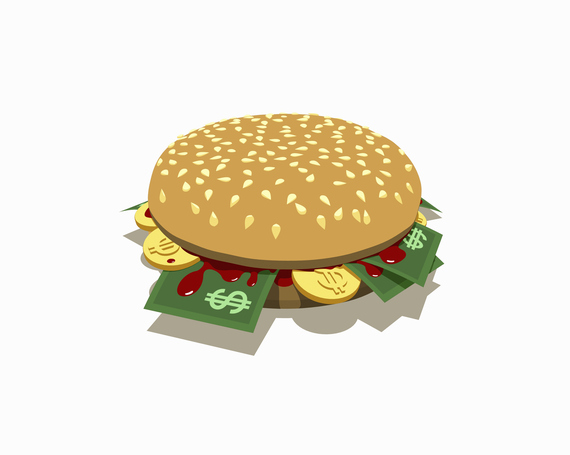We have become so used to technology, or at least its application, being touted as the disrupting factor in everything from taxi service to overnight stays that it's worth taking a moment to look at other factors that can disrupt, and maybe even then take a second look at technology and a deep dive into what was actually disrupted.
What inspired me was the huge success of the Shake Shack IPO in the United States last week.
Shake Shack went public Friday and closed its first day of trading up some 120 percent.
Now, before anyone knee-jerks, I get that it's not the out-of-sight/out-of-whack kind of public offering we have become used to in the tech space, nor will its valuation ever rival that of Uber. However, it is instructive and worth the time to savor the success of Shake Shack and understand why it is in fact a disruptor that McDonald's is no doubt paying attention to -- despite the fact that it would take a lifetime to become a true competitor, if ever.
What really interests me is that, unlike McDonald's and the other huge fast food players, Shake Shack has been cited for consistency issues -- sort of inevitable, as the ingredients are fresh and cooked to order, the average check is twice that of a McDonald's (at least), and they are equally unhealthy.
Yet they have created an excitement and a momentum that is already taking them global, and Danny Meyer, who created the concept in a hot dog stand operation just a few years ago, is an entrepreneur no less than Mark Zuckerberg.
And therein lies the lesson. Entrepreneurs, like their ideas, come in all shapes and sizes.
They span all ages. According to the Kauffman Foundation for Entrepreneurship, contrary to popularly held assumptions, the highest rate of entrepreneurial activity (in the U.S.) belongs to the 55-64 age group over the past decade. And by the way, I suggest you take a walk through any WeWork community in the world (I highly recommend it; they are amazing) and look at the broad spread of ages and types of business represented.
And entrepreneurs come in all kinds of personalities. Howard Stevenson, Harvard professor of entrepreneurship, said, "The entrepreneurs I know are all different types. They're as likely to be wallflowers as to be the wild man of Borneo."
Finally, you can find them all over the world. According to the latest Global Entrepreneurship Monitor, Colombia had the highest rate of people with entrepreneurial intentions, and Brazilians had the most-positive views of entrepreneurship as a good career choice, followed by Poland and China.
We get so caught up in the stratospheric valuations and machinations of the latest and greatest tech applications and the newest so-called disruption that we lose sight -- if we ever had it -- of creative, inspired, imagination-driven innovation that could be a restaurant or coffee bar, a retail store or an ingenious service or physical product -- and there are so many!
Disruption can come from culture, service, work ethic, aggregation, smart use of real estate and probably a dozen other factors, and what we look at as technological disruption is often in fact use of a technology, but, more importantly, change in service level and manipulation of business plan.
Everyone and anyone can be an entrepreneur and a disruptor, and the measure of both need not be how much money was raised, what some digibabble pundit wrote or how many apps were downloaded on day one. Some days it might just be how many hamburgers were eaten.
I'd go even further Listen to Reid Hoffman:
"I actually think every individual is now an entrepreneur, whether they recognize it or not."
Let's be clear: We disrupt every time we use Uber or buy a movie ticket on our smartphones or use some apps to make a task simpler.
In fact, we are disruptors and entrepreneurs, solving problems, using our own ingenuity to adapt to new conditions and making the world our own, eating hamburgers....
Enjoy your new status -- but don't buy the Porsche just yet!
What do you think?

